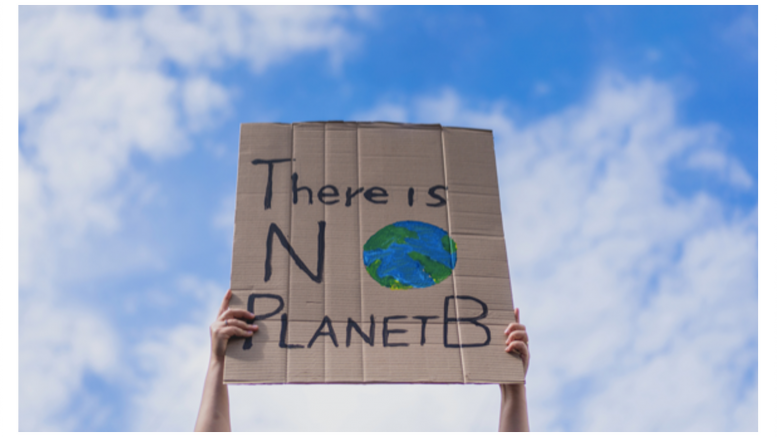Silence is Golden, But for How Long?
Silence has often been considered a virtue, especially in communications. It can reflect modesty, respect, subtlety, and even quiet strength. There’s also a tactical advantage—remaining silent often compels others to speak, filling the void with their assumptions, ideas, or arguments.
In many instances, silence also serves as a means of avoiding confrontation or risk. The adage “Better to remain silent and be thought a fool than to speak and remove all doubt” is often invoked in such cases. This instinct is no different for organisations, particularly regarding sensitive political and social issues. Hence, silence can be seen as a survival mechanism, a way to avoid polarising key stakeholders or alienating segments of the customer base.
However, this strategy comes with its risks. While silence may be wise in specific contexts—such as avoiding contentious political debates or socio-economic conflicts—it becomes far less defensible when it comes to issues like climate change. Climate change represents an undeniable and universally acknowledged threat, and in this context, silence can quickly turn from a shield into a liability.
Greenwashing to Greenhushing: How Staying Silent on Climate Change is Not Going to Work
Climate change is accelerating faster than ever before. It is now indisputable that human activity is the primary driver of intensifying droughts, floods, wildfires, heat waves, and major storms. This growing crisis has pressured companies to adopt climate-conscious practices and educate their employees on global citizenship. However, meeting these demands often requires significant financial investments.
As a result, many companies resort to “greenwashing,” projecting a false image of climate leadership to satisfy stakeholders.
Greenwashing is a well-known issue, but a more worrying trend is emerging: “greenhushing.” Like greenwashing, this too threatens to undermine climate progress and is a process in which companies deliberately choose not to publicise their climate actions, goals, or challenges. This silence is particularly puzzling when industries most impacted by climate change often withhold the most information.
The problem with greenhushing is that, unlike the strategic advantages of silence in specific contexts, staying silent on climate change signals a lack of knowledge, commitment, or capability. It also risks damaging reputation and signals a lack of responsibility and transparency to stakeholders.
Studies show that people are more willing to discuss climate change when they perceive that others are concerned about it. This suggests that companies staying quiet may either be disconnected from the issue and stakeholder requirements or unwilling to engage—a dangerous message and perception.
A recent report by ‘South Pole’ revealed that nearly a quarter of global climate leaders choose not to publicise their achievements in climate space, sharing only the bare minimum or what’s legally required.
This form of silence goes beyond simply saying nothing—it also involves a lack of follow-through. For instance, Uber introduced a feature allowing riders to see the emissions they could avoid by choosing electric or hybrid options. Similarly, flight search engines like Skyscanner now display the CO2 emissions of different flight options.
However, this will not yield the results or contribute to climate change mitigation. Only providing environmental information without sustained engagement and communication on changing customer trends/buying patterns reflects the broader issue of companies doing the bare minimum without any deeper commitments or initiatives.
The hesitance to speak out is often tied to fear of backlash. In today’s polarised climate, particularly in Western markets, companies’ risk being labelled politically if they make public commitments on climate change. Companies that communicate more openly about their environmental efforts risk being sued for neglecting their duty to maximise shareholder profits. Moreover, companies that promote themselves as environmentally responsible are held to a higher standard than those that remain silent. By “banging the drum” on climate action, they invite scrutiny, raise expectations, and risk increased pressure to make even more significant commitments.
As the saying goes, “Silence often involves ignoring the things that demand attention, not the matters we overlook, but the conspicuous ones we deliberately avoid.” This sentiment captures the current shift in climate communications.
A Delicate Balancing Act: How to Walk the Tight Rope
Companies must ensure their climate messaging is authentic and transparent to navigate the fine line between climate silence and unwanted scrutiny/reputation damage. It is important to share their environmental journey’s successes and challenges, reinforcing that sustainability is a continuous process, not the destination. By engaging audiences and emphasising a commitment to ongoing improvement, companies can mitigate criticism and reduce the risk of accusations of greenwashing or greenhushing.
More on this in my next post!
The views and opinions published here belong to the author and do not necessarily reflect the views and opinions of the publisher.



Be the first to comment on "Reputation at Risk: The Cost of Silence on Climate Change"